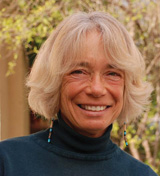Volume 26 · Number 2 · Winter 2009
Aggies Remember
Symphony with Four Minors
The disharmony of combining kids and classical concerts.
In spite of the near-impossibility of dragging four small children from the dinner table, dressing them in the cleanest, least holey clothes findable and stuffing them into the tiny back seat of an early 1970s Corolla (some of you may remember those days when children rode loose in backseats and parents were not, as a result, arrested for child-endangerment), we always arrived in time for first-row seats. Luckily, the drive, as Davis drives tend to be, was only five minutes long, and sometimes people avoid the front row of a concert hall anyway. Not us. I wanted those kids as close to the UC Davis Symphony Orchestra as possible. I figured that if they could see the musicians’ hands they’d not only learn something about playing an instrument but also fear that the musicians could see them. And surely you wouldn’t want to be observed whispering to your siblings, picking your nose or kicking the seat. Of course, the front row also meant there was no seat in front of you to kick.
I held my breath during most of the performance. How long could a 4, 5, 7 and 8-year-old manage to sit for Bach’s Mass in B Minor? When Julian, the youngest, got restless, I’d encourage sleep — and she was usually happy to oblige — on the grounds that a sleeping child is not a disruptive child.
Both my then-husband and I were UC Davis graduate students. We arrived in Davis in 1979 and spent the next eight years taking classes, doing research, teaching introductory courses in the political science and English departments, respectively, chasing children and figuring out how to pay the rent with two teaching assistantships. It wasn’t just rent, of course. Children eat, and there were also the Suzuki piano lessons for four, much to the eye-rolling amusement of our next-door neighbor, Jana, who had to listen to four daily run-throughs of four variations on “Twinkle, Twinkle, Little Star.” And what better to inspire practice than regular concert-going? The symphony performances were pretty much free in those days, so this good entertainment was well within even our stringent budget.
There was another great incentive to attend these events. My fellow English 101 instructor, Cynthia Bates, was the concert master of the orchestra. “There’s Cynthia,” I’d whisper when she walked onto the stage, elegant and assured in a long, black dress, to audience applause. We were the most enthusiastic clappers. When the concerts were over, she’d greet each of them. I was delighted to be able to provide my aspiring musicians (though the aspiration was no doubt more mine than theirs) with such a wonderful role model.
In 1987 I took a teaching position at the University of Maryland, and we became East-Coasters, more or less. The kids were teenagers by then and less amenable to herding, they weren’t taking piano lessons anymore, the logistics of concert-going were much more complicated, and the concerts themselves much more expensive. I didn’t know any concert masters either. And the kids’ music of choice was definitely not classical. Well, I reasoned, they’re teenagers. I figured they’d return to their classical music childhoods once they got tired of rock and ’60s nostalgia.
Nearly 20 years later, two years ago, when I moved back to Davis, those front-row squirmers were already back in their native California and dealing with little squirmers of their own. Eight-year-old Seda is taking Suzuki violin lessons. UC Davis Symphony Orchestra concerts are now held in the beautiful Mondavi Center rather than in familiar old Freeborn Hall, and they cost $16 (still a great bargain, but I doubt that teaching assistant salaries have risen accordingly). Cynthia Bates still plays the violin and is still the concert master. D. Kern Holoman still conducts (though this is his last season). And I can still get to concerts in five minutes.
And yes, my now-grown children all love music. Rock, folk, bluegrass, punk and jazz. Those classical-music-infused childhoods? Those wonderful concerts? Jakob doesn’t often listen to classical music, but he says he likes it. He’d be willing to attribute this tolerance to concert-going, but then, he says, maybe it was the tapes we played at home or the in-the-womb imprinting of Baroque LPs. Benedicta’s lasting memory is not of the music but of the “mad conductor,” as the children dubbed David Nutter, then as now director of the Early Music Ensemble. (His promised appearance inevitably got their shoes on faster.) Allegra admits sheepishly that she seemed so attentive at the concerts in anticipation of hot chocolate at Café Roma afterwards. And Julian’s comment is, “I always fell asleep. To this day, every time I hear classical music, I fall asleep.”
I guess those UC Davis concerts were all about me, after all. Last fall, when I took to regular concert-going again, I got so inspired that I bought a used cello and started taking lessons. Seda and I played a duet a few months ago. The unwitting audience covered their ears, but she and I had a good time screeching out Suzuki’s first variation on “Twinkle, Twinkle, Little Star.” Can Bach be far behind?

Susan Leonardi, M.A. ’82, Ph.D. ’86, returned to Davis after 20 years as an English professor at the University of Maryland. The author of Dangerous By Degrees, The Diva’s Mouth, And Then They Were Nuns and Nun Country, Leonardi is a freelance writer, editor of the Covell (Un)Common Rag and wine columnist for the Davis Enterprise. She lives with her partner, Rebecca Pope, and revels in the new generation of minors — Seda, Nico, Erowyn, Sasha and Sylvie.
